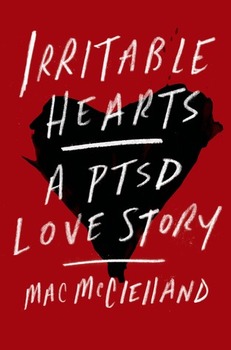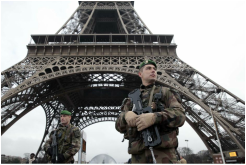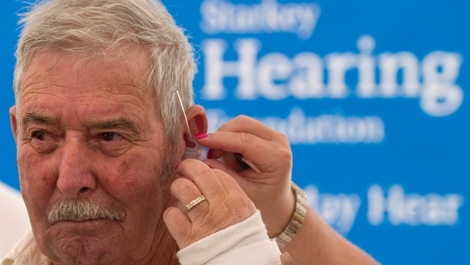"They're all pieces of that puzzle that makes me not the mess I was," Lawrence said. "It feels good, it feels good to be who I am today."
|
In this short clip from CBC's TV show Hello Goodbye Canada, viewers meet Lawrence and his family. Lawrence is a veteran with PTSD, who discusses his experiences in the military and how his family and therapy dog Lynx have helped him overcome his mental health struggles. We also learn that Lawrence is headed to BC to participate in an Equine Assisted Mindfulness program, which is another piece of his therapy program. "They're all pieces of that puzzle that makes me not the mess I was," Lawrence said. "It feels good, it feels good to be who I am today."
0 Comments
 Benzodiazepines are a type of medication which fall under the sedative-hypnotic class, and work by enhancing the activity of the neurotransmitter GABA. While benzos are most well-known for their sedating and anxiolytic effects, they have been used in the treatment of those with seizures, alcohol withdrawal, for anesthesia purposes, as well as for insomnia and mental health issues like anxiety (particularly in the short term). Interestingly from a historical perspective, benzos were also the original treatment for PTSD, and were thought to be beneficial in treating PTSD symptoms rapidly, particularly anxiety and trouble sleeping. While statistics range from 30% to upwards of 74% of those with PTSD being treated with benzodiazepines of some kind, there is growing evidence that suggests that these medications are not effective in treating the core symptoms of PTSD (i.e. hyperarousal, dissociation, and avoidance). In addition, studies have also suggested that use of benzodiazepines for those with PTSD may be in fact be harmful with risks that far outweigh the benefits. The studies below suggest that we should be very cautious in prescribing benzos for PTSD due to the high rates of comorbid substance use disorders (a serious risk given the tolerance/withdrawal associated with these meds), in addition to suggestions that benzos may in fact worsen overall severity of PTSD, depression and treatment outcomes for those who are affected. To learn more, check out these articles: https://www.ncbi.nlm.nih.gov/pubmed/26164054 http://www.ptsd.va.gov/…/newsl…/research-quarterly/v23n4.pdf In this expressive spoken word poem, Anya Klimitchev shares her experience with PTSD, and highlights the associated hyperarousal and powerful flashbacks. " ...They seem to puncture my heart making it so that it is impossible to love myself or anyone else because of my damaged stature of insecurity and fright. They seem to puncture my skull making my brain forget to tell me that where I am is not back with my father that where I am is not back in that abuse that where I am is not the black hole of hate that always seemed to consume me when I was there. They seem to puncture my soul causing my sense of self-conscious to be lost to the deep end taking away my dreams and goals ..."  Canadian humanitarian, social activist and writer Amanda Lindhout recently spoke at the CPA conference in Vancouver, BC, where she recounted in honest detail her unimaginable story of being taken hostage in Somalia for over 400 days. During her moving and powerful talk, Lindhout described in vivid detail what it felt like to lose her freedom, and told stories of unthinkable pain and suffering, both emotional, physical, and even sexual. However, it was through these experiences of weakness and unprecedented vulnerability that Lindhout found strength. More than that her experiences allowed her to gain new perspectives, such as a how "hurt people hurt people", the concept of which sprouted seeds of compassion for her captors. Even in the darkest moments, Lindhout still believed in human goodness and grace. Following her release, Lindhout returned to Canada where she experiences ongoing battles with anger and PTSD. However, she is an inspiration to us all as she continues to demonstrate resiliency and has turned her "compassion into action" through founding the Global Enrichment Foundation which "empowers, educates and provides aid in the very country where she lost her freedom". You can learn more about Lindhout, by checking out her website http://amandalindhout.com/ or by reading her memoir A House In The Sky. "The dramatic and redemptive memoir of a woman whose curiosity led her to the world’s most beautiful and remote places, its most imperiled and perilous countries, and then into fifteen months of harrowing captivity—an exquisitely written story of courage, resilience, and grace." Recommended For: Everyone, including travelers and journalists, and anyone looking to be inspired or reminded of their inner resiliency  Mac McClelland is an award-winning journalist who spent many years of her career covering traumas and tragedies, as well as human rights issues, around the world. However, McClelland soon found that she was not immune to these on-the-job exposures to violence, disaster, and terror as they began to haunt her and wreak havoc in the form of flashbacks, nightmares, and other manifestations of PTSD. Recently, McClelland wrote a memoir called Irritable Hearts: A PTSD Love Story in which she explores her personal experience with PTSD and her journey to recovery and ultimately survival. Recommended For: Journalists and writers alike, and those keen to know more about PTSD |
Description
Supporting and enhancing students' and health professionals' knowledge and understanding of mental health and psychiatry
Archives
June 2017
Categories
All
|





 RSS Feed
RSS Feed
